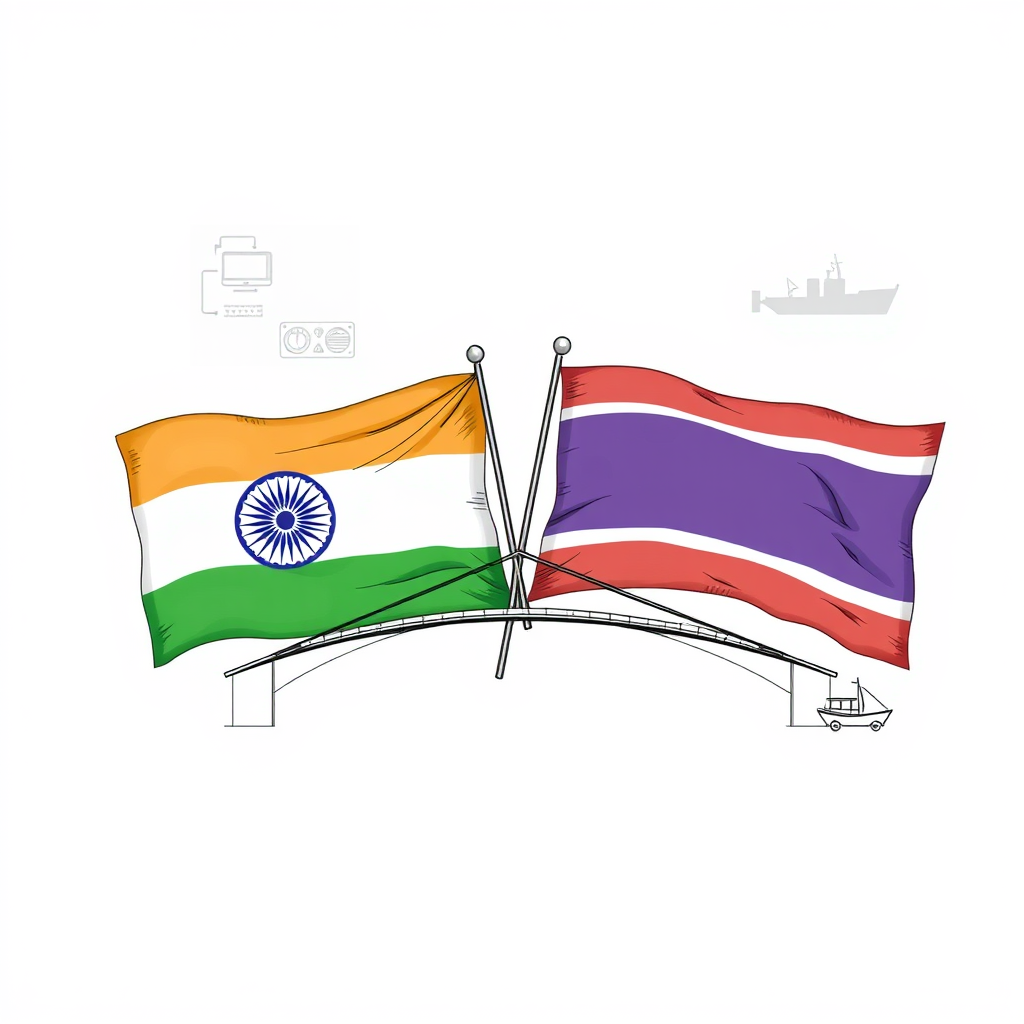India & Thailand Forge Stronger Strategic Partnership

India and Thailand have significantly deepened their relationship, formally elevating it to a Strategic Partnership during a visit by Indian Prime Minister Narendra Modi to Bangkok. The move, announced Thursday following extensive talks with Thai Prime Minister Paetongtarn Shinawatra, signals a commitment to increased cooperation across a broad spectrum of areas.
The leaders oversaw the signing of multiple Memorandums of Understanding (MoUs) designed to invigorate the longstanding friendship between the two nations. Key agreements focused on bolstering digital connectivity, with a pact between Thailand’s Ministry of Digital Economy and Society and India’s Ministry of Electronics and Information Technology. Collaboration on maritime heritage was also prioritized, evidenced by an MoU concerning the development of India’s National Maritime Heritage Complex at Lothal, Gujarat.
Further agreements addressed support for micro, small, and medium enterprises (MSMEs), with a partnership between India’s National Small Industries Corporation Ltd. and Thailand’s Office of Small and Medium Enterprises Promotion. Cooperation was also formalized between India’s Ministry of Development of North Eastern Region and Thailand’s Ministry of Foreign Affairs, alongside a link between the North Eastern Handicrafts and Handlooms Development Corporation Limited and Thailand’s Creative Economy Agency.
Prime Minister Modi emphasized the synergistic nature of India’s ‘Act East’ policy and Thailand’s ‘Act West’ initiatives, highlighting potential for expanded collaboration. He specifically noted a focus on strengthening ties between Thailand and India’s North-Eastern states, particularly in tourism, culture, and education. Discussions also covered increased trade, investment, and business exchanges.
Beyond these areas, both leaders committed to enhanced cooperation in renewable energy, digital technologies, electric vehicles, robotics, space exploration, biotechnology, and startups. Improving both physical and financial connectivity was also identified as a priority.
Strategic areas such as defense, security, maritime safety, and hydrography also received attention, alongside a shared commitment to combating terrorism and money laundering. Prime Minister Modi extended India’s solidarity to Thailand following a recent earthquake. He also reaffirmed India’s support for ASEAN unity and centrality, and both nations expressed their commitment to a free, open, and rule-based order in the Indo-Pacific region, prioritizing development over expansionism.
This elevation to a Strategic Partnership reflects a growing alignment between India and Thailand, positioning them as key partners in a rapidly evolving regional landscape. The breadth of agreements suggests a desire to move beyond traditional diplomatic ties and forge a deeper, more comprehensive relationship built on mutual economic and strategic interests.